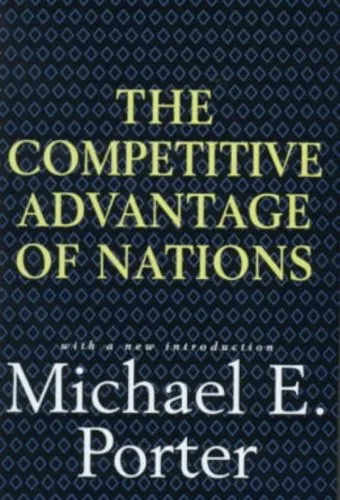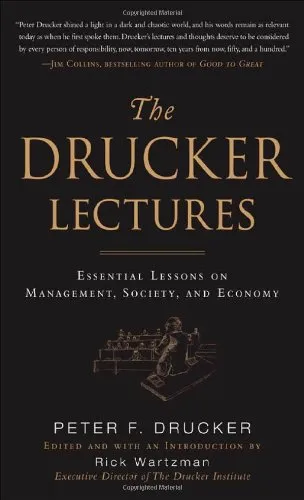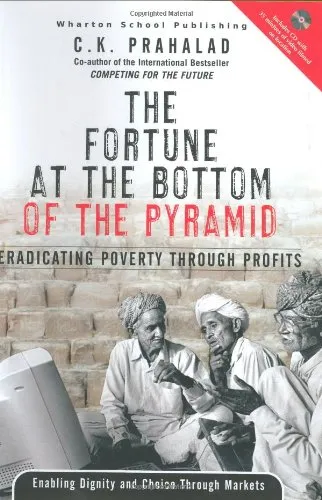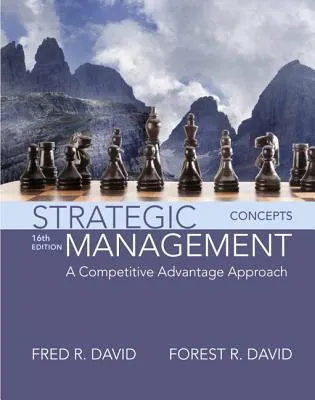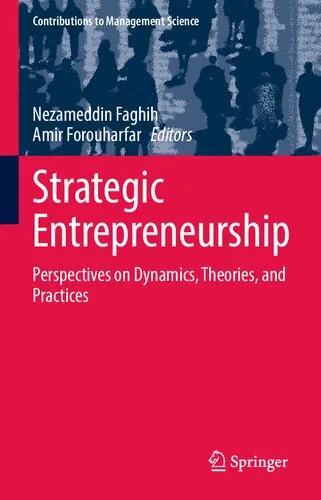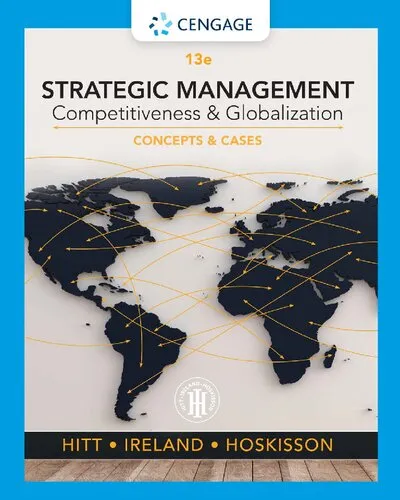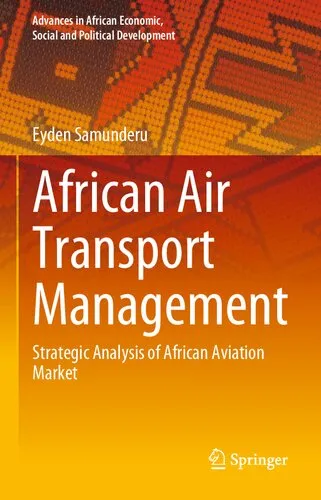Competitive Advantage of Nations
4.5
Reviews from our users

You Can Ask your questions from this book's AI after Login
Each download or ask from book AI costs 2 points. To earn more free points, please visit the Points Guide Page and complete some valuable actions.Related Refrences:
Introduction to the 'Competitive Advantage of Nations'
Michael E. Porter, a renowned academic and expert in the field of competitive strategy, presents a comprehensive analysis of what makes certain nations outperform others economically in his seminal work, "Competitive Advantage of Nations". First published in 1990, this book revolutionizes how business leaders, economists, and policymakers understand national economic success by introducing the concept of competitive advantage on a national scale.
Detailed Summary of the Book
In "Competitive Advantage of Nations", Porter puts forth a theory that the success of a nation in international markets derives not merely from classic factors such as natural resources or labor force, but from the ability of its industries to innovate and upgrade. The book delves into the dynamics that drive national competitiveness and how governments, companies, and individuals can foster an environment that supports innovation and competitive advantages.
Porter introduces the concept of the "Diamond" framework, a sophisticated model that identifies the four broad attributes of a nation — factor conditions, demand conditions, related and supporting industries, and firm strategy, structure, and rivalry — which collectively create an environment conducive to national competitiveness. Through an in-depth analysis supported by numerous case studies across different countries and industries, Porter uncovers patterns of international success and offers actionable insights to both policymakers and business leaders.
Key Takeaways
-
The "Diamond" framework illustrates how the competitive advantage of a nation fundamentally depends on the interplay between certain attributes and industries within its borders.
-
Governments have a pivotal role in enhancing or hindering national competitivenessthrough policy decisions that affect education, infrastructure, and the regulatory environment.
-
National competitiveness is not inherited but rather the result of a nation's capacity to innovate and upgrade its industries continually.
-
Clusters and industrial networks are critical to fostering a healthy competitive environment, driving innovation, and supporting the trade of knowledge within an economy.
Famous Quotes from the Book
"Nations succeed in particular industries because their home environment is the most forward-looking, dynamic, and challenging."
"Innovation is the specific instrument of entrepreneurship, the act that endows resources with a new capacity to create wealth."
Why This Book Matters
"Competitive Advantage of Nations" stands as a cornerstone in the field of economic and strategic management, challenging traditional views and offering a robust framework for understanding global competitiveness. The book’s impact is profound, influencing economic policy and strategy formulation around the world. By integrating complex theories of competition with practical applications, Porter's work empowers decision-makers to formulate strategies that are grounded in a deep understanding of the competitive dynamics at play on a national scale.
As globalization continues to reshape the economic landscape, Porter's insights remain critically relevant for nations seeking to carve out unique competitive advantages. Not only is this book essential reading for academics and practitioners seeking to comprehend the factors that lead to a nation's success, but it also provides a blueprint for fostering sustainable economic development through innovation and strategic competitive positioning.
Free Direct Download
You Can Download this book after Login
Accessing books through legal platforms and public libraries not only supports the rights of authors and publishers but also contributes to the sustainability of reading culture. Before downloading, please take a moment to consider these options.
Find this book on other platforms:
WorldCat helps you find books in libraries worldwide.
See ratings, reviews, and discussions on Goodreads.
Find and buy rare or used books on AbeBooks.
1417
بازدید4.5
امتیاز0
نظر98%
رضایتReviews:
4.5
Based on 0 users review
Questions & Answers
Ask questions about this book or help others by answering
No questions yet. Be the first to ask!
